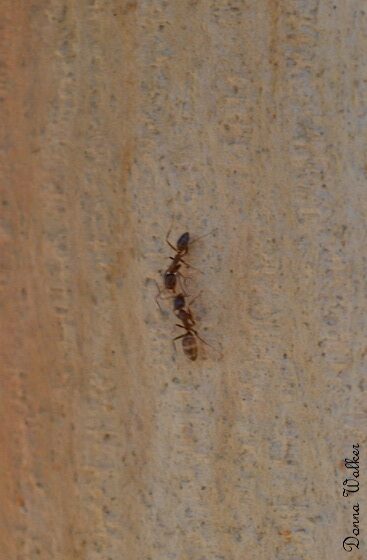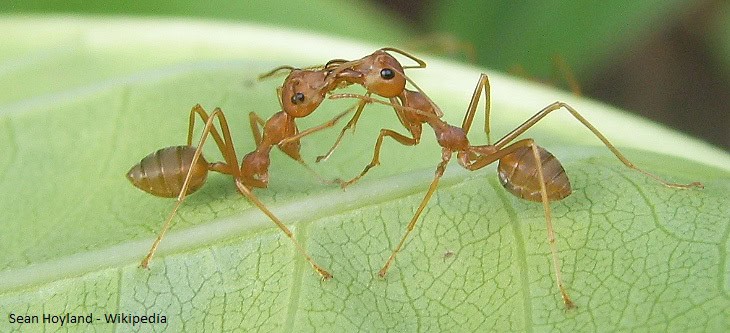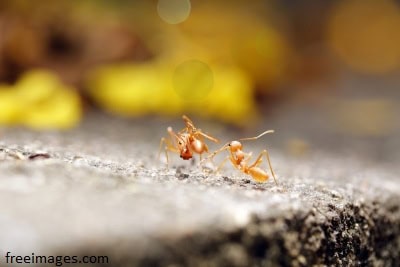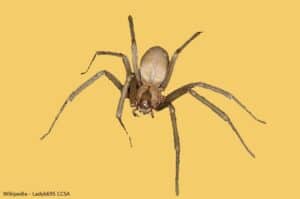Questions About Ant Communication
Ever wonder how ants figure out where the cookie jar is, after you hid it behind the appliances, on the kitchen counter? Hiding food from ants can be a summer pastime – this is true. But they always manage to find the cookies! Ants are not only survivors but social creatures, all working for the good of the colony.
When it comes to food, good communication is a necessary practice among ants to ensure the survival of the colony. Ants communicate through chemicals called pheromones. For instance, if an ant is out foraging and finds the cookies that were left on the kitchen counter, she will leave a trail of pheromones on her way home so the other ants can follow and partake in the cookies too.

Ant Kissing and Touching Communication Techniques
Have you ever noticed how ants will stop and “kiss” one another? What appears as a kiss is another form of communication. One or both of the ants gives the other a taste of the chemicals it has in its crop (a special ‘community’ organ separate from the ants’ stomach). This “kiss” tells the other ant the needs of the colony and what job it should be doing.
Ants also communicate by smelling each other or tapping and stroking their bodies to determine what must be done next. If there is danger, some ants communicate with sound by squeaking or rapping their heads on a hard surface.

Ant Pheromones for Communication
Pheromones, however, are the preferred form of communication by the majority of ant species and employ between 10 to 20 chemical “words” and “phrases,” each conveying a distinct but very general meaning. Among the categories of “meaning” are attraction, alarm, identification of other castes, recognition of larvae, and discrimination between nest-mates and strangers.
Pheromones from the queen can inhibit her daughters from laying their own eggs and also the development of her own daughter larvae from becoming rival queens. Pheromones also play a role in how many soldier caste are born, ensuring a balance within the colony.

Ants Communication Aggression
Aggressive Behaviors: Certain species like weaver ants are aggressive in their social and communication skills. African weaver ants protect their domain as if it were a garrison state. These ants will attack mammals and other intruders viciously.
They actually “hunt” down members of other weaver-ant colonies that have wandered into their territory – and kill them. The weaver ant displays a hostile posture when it comes upon an enemy. Mandibles (mouth parts) open up wide and their abdomen is lifted, ready to fight.
Most of a weaver ant’s victims are taken back to the nest and eaten, providing additional food for the colony.
Got ants? Call today at 1-800-986-1006 for help with an ant infestation. You’re also welcome to complete our contact form and a caring Hearts Pest Management representative will contact you shortly.


